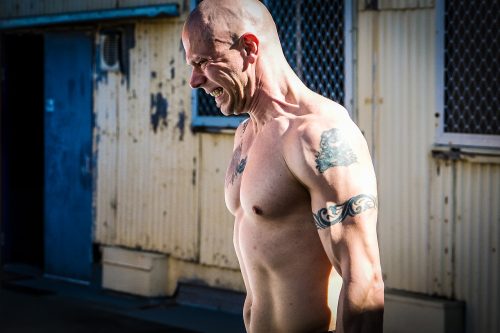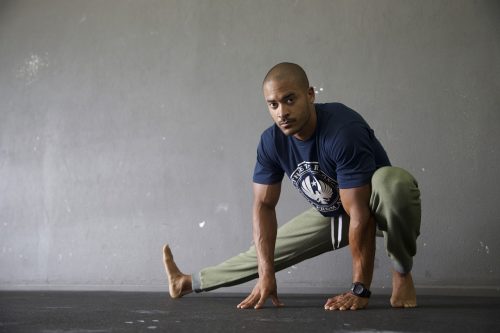Mastering Your Craft: Making Continual Progress as a Lifter
Sets, reps and weight. Calories and macros. Heavy days, light days, speed days, conditioning days. These are all important variables we manipulate in our training programs and diets, the meat and potatoes of the routines we use to get bigger, stronger and leaner. Not surprisingly, these variables are the focus of most articles on training and nutrition – and rightfully so!
That said, all of this stuff seems less and less important the more experienced you get. As you rack up years with the iron, all of these details more or less fall into place, and you develop your preferences, your philosophy and your overall way of doing things. That’s not to say your rep maxes or your training split or your diet don’t matter anymore – of course they do! It’s just that most of these things become automatic for advanced lifters, and we begin to focus more on other aspects of the game. Nagging injuries, fatigue management and long-term plateaus – these are the issues that seasoned meatheads think about more often than not.
It’s not just advanced lifters that should consider this stuff, though! If you’ve ever talked shop with a long-time lifter, they’ve probably given you some advice that they “wished they’d taken years ago.” And, if you’re like most other young guys and girls, you rolled your eyes and went back to your usual routine. This cycle is repeated ad nauseum from one generation of lifters to the next, and most gym rats make the same mistakes as their predecessors.
That’s not how things have to be! Whether you’ve been lifting for a year or a decade or more, you can (and should) apply the lessons that so many lifters have already learned. If you want to truly master your craft and realize your potential – competitive or not – keep the following considerations in mind.
Letting Go

I know I said most lifters develop “their” way of doing things. You’ll come into your own training style, your own diet strategies and meal plans and even your own way of scheduling your life and managing stress to get the most out of your training.
That said, you still need to be able to “let go” and change things up – often in a big way. Sometimes these changes are out of your control. A new job, new relationship or a mountain of stress may force you to switch up almost every aspect of the routine you’ve taken for granted. At other times, you’ll simply need a big change to recharge, recuperate and eventually progress. Don’t drink your own Kool-Aid so much that you can’t make a change when necessary.
Being Objective

Objective analysis should be the basis of every training program and diet, but let’s be real – we’re all emotional creatures. We may think ourselves superior and even “hardcore” because we train legs, we eat bland food, and we do all of those other things that casual gym rats aren’t willing to do – the hard stuff that gets results! But if we’re honest with ourselves, we’ll have to admit that there are still major aspects of our programs that are based purely on preference and emotion.
For instance, I’ve seen plenty of long-time lifters with pretty good physiques who lift super-heavy, day in and day out. Did those heavy weights help them build their bodies? Sure. Is constantly striving for a new five-rep-max going to build a mountain of NEW muscle tissue? Not a chance. If he took a step back and objectively analyzed his training he’d realized he needs to lower the weight, bump up the volume and focus on hypertrophy for a while before touching near-maximal weights again.
Or, consider the guy who’s been “bulking” for a year or more. He’s not a total fatass, and most non-lifters would still think he’s in pretty good shape. But he hasn’t really put on new muscle in the last few months, his strength is stagnant, and he certainly hasn’t gotten any leaner. If he’s honest with himself and truly wants to improve, he’ll spend a few months dieting back down before he attempts to put on more mass.
Managing Injuries

Like most young lifters, I thought was invincible. Workout after workout, year and year, I’d hit it hard, always pushing my body to the brink, and always recovering just fine before the next session. Sure, I had some nagging pains here and there, but it wasn’t anything serious – until it was! I got hurt once…and then I got hurt again…and again…and again. Finally, I realized I’d have to make a change if I wanted to keep lifting for the long haul.
I’m not saying you should cut a session short every time you feel a little twinge, but if you love lifting enough to do it for the rest of your life, you need to start taking care of yourself TODAY. Warm up thoroughly, more than you think you really need. Balance heavy sessions with lighter workouts. Focus as much or more on higher-rep hypertrophy training than heavy, low-rep strength training. And when a movement huts, stop doing it, or at least adjust your technique to make it work for you. Compromising one workout will mean nothing in the long run, but it only takes one bad rep to put you out for months.
Overcoming Plateaus

Newer lifters often complain that they haven’t gotten any stronger in the last few weeks, or that they haven’t gained weight in a month. I feel for them, but these little “plateaus” are nothing compared to what intermediate and advanced lifters experience. Like any endeavor, the better a bodybuilder or strength athlete you become, the more difficult it will be to progress even further.
There’s not much you can do to avoid plateaus. They’re inevitable, and you’ll plateau faster and more often at the things you naturally suck at. Great squat, great bench, horrible deadlift? Join the club – that lift will always move the slowest, and you’ll have to constantly come up with new ways to improve. Are your arms lagging behind the rest of your physique? You’ll probably have to hammer them twice as hard, and they’ll still take twice as long to grow.
Ultimately, understanding that plateaus happen will help you to keep a level head and realistic view of your training. Your weak points CAN and SHOULD improve, but running yourself into the ground in pursuit of fast progress will only leave you tired, weak and injured. Leverage your strengths, and do as much as you can to bring up your weaknesses. This is a marathon, not a sprint.
Sustainability

Most of us train hard throughout the year, but there are times when we really hunker down and hit the iron with a vengeance. And, even though we tell ourselves that our higher volume, higher-intensity training plan is going to become our new normal, we usually fizzle out after a few weeks. In fact, after a month or so of relentless, balls-to-the-wall training, most lifters need at least a week of easier-than-normal training to recuperate.
After you’ve gone through this cycle a few dozen times, you can look back at your training and realize that with every peak must come a valley, and that no matter how bad you want to be bigger or stronger or leaner, you can’t force results in record time.
Moving forward, hopefully you’ll understand that your training program needs to be sustainable. It should tax your recovery abilities, and you should eventually need lighter sessions, easy weeks and even phases of training dedicated to recovery. However, if you try to ramp up everything at once, you’ll bite the dust long before you get the results you want. This applies to training and dieting!
A Big-Picture Mindset

Overall, all of these considerations rely upon one thing – a big-picture, future-oriented mindset. Every great physique was built gradually, brick by brick, through years of hard, smart training and dieting. In order to make the right choices today, you’ve got to value your long-term progress over your short-term (and often short-sighted) goals.
In the meantime, though, cherish every little win – another 10 pounds on your 5-rep-max, another pound gained or another bump or line on your body. These small victories add up more quickly than you’ll realize, and if you can look back on a productive, injury-free, burnout-free year of training, you’ll be amazed at the results.











